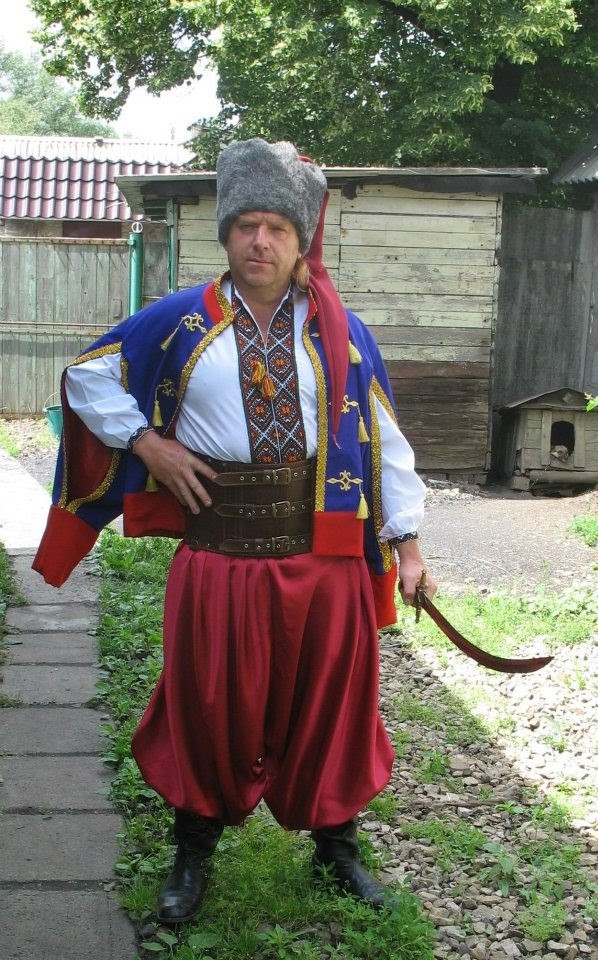Speeches Shim

Based on international law, a court in Ukraine recognized medical certificates issued in non-government controlled territory. This helped a retiree from Luhansk Oblast obtain a verdict in his favor resulting in pension payments. Lawyers call this a precedent-setting decision.
Sergiy Kendzeyerskyi, 54, previously lived in the now-Russian-occupied village of Ivanivka in Luhansk Oblast, where he worked as an agricultural machinery operator. Even before the conflict in the Donbas, Sergiy was active in the local pro-Ukrainian movement, leading a local Ukrainian Cossack group and organizing several patriotic festivals, including the Zvytyaha Dykoho Polya (Valor of the Wild Fields) military reenactment event.
“I realized that I would not be safe staying at home, because my feelings were well known to everyone around me. Pro-Russian gunmen came to our house twice, and both times they took my wife and I away, supposedly to face the firing squad. You can imagine the things I had to go through, and the number of enemies I had there”, he explains.
Despite the dangers he faced because of his pro-Ukrainian views, for almost six years Sergiy and his wife continued to live in an area no longer controlled by the Ukrainian government. It was not easy. Not only due to the psychological pressures from within the community, but Sergiy also economic hardship. As he suffered from a cardiovascular condition, Sergiy had been awarded disability status by the government, making him eligible to receive a pension. After the anti-terrorist operation launched in Luhansk Oblast in the summer of 2014, those payments ceased.
Due to the dangers, in 2019, they decided to move to Dnipro to stay with their daughter and her family. Sergiy also filed an application with the Pension Fund of Ukraine to have his payments resumed because he needed money to cover his living and medical expenses.
“Unlike many of the so-called “‘pension tourists,’” I had not received a kopek from the Ukrainian government while I lived in the non-government-controlled territories, even though I had diligently contributed to my Pension Fund”, says Sergiy. Still, his application was rejected. Eventually, Sergiy made contact with human rights defenders of the Dnipro chapter of the Ukrainian Helsinki Human Rights Union (UHHRU).
After reviewing his case, UHHRU lawyer Vitaliya Serebryanska contacted the Pension Fund again.
“Their response was that, in their opinion, war and the resulting inability to leave the temporarily occupied territory were not a justifiable reason for missing the deadline to petition the Pension Fund within the legally prescribed period of five years,” she recalls. “They wanted Sergiy to provide documents verifying his employment and salary history. They insisted on original papers, although they could see the electronic copies in his Pension Fund case file. Sergiy tried to explain that he had moved to Dnipro from the combat zone and that he could not go back.”
Rejected by the Pension Fund, Sergiy and the human rights defenders chose to go to court. They looked to prove that he was unable to leave the occupied territory for those five years due to poor health, which was why he missed the deadline for the resumption of his pension payments.
In July 2020, the Dnipropetrovsk District Court decided in favor of Sergiy, recognizing for the first time that war and anti-terrorist operation are justifiable reasons for being unable to apply to the Pension Fund.They also accepted documents that had been issued in the occupied territory.
“It is a precedent-setting verdict, since it recognizes that the temporary occupation of territories is a justifiable reason for missing the five-year deadline for application to have your pension payments resumed,” Ms. Serebryanska explained.
Sergiy is looking forward to getting his money, which he plans to spend on medical treatment and physical therapy.

Comment
Make a general inquiry or suggest an improvement.